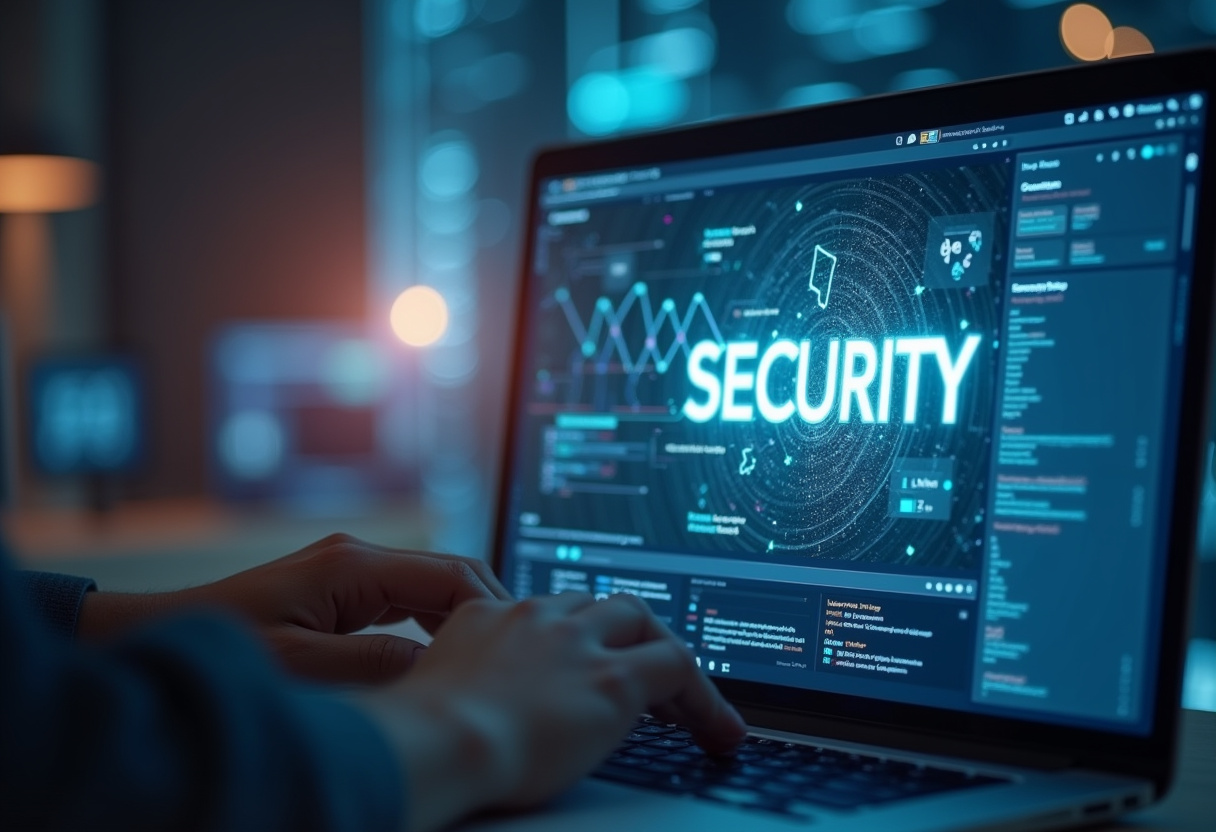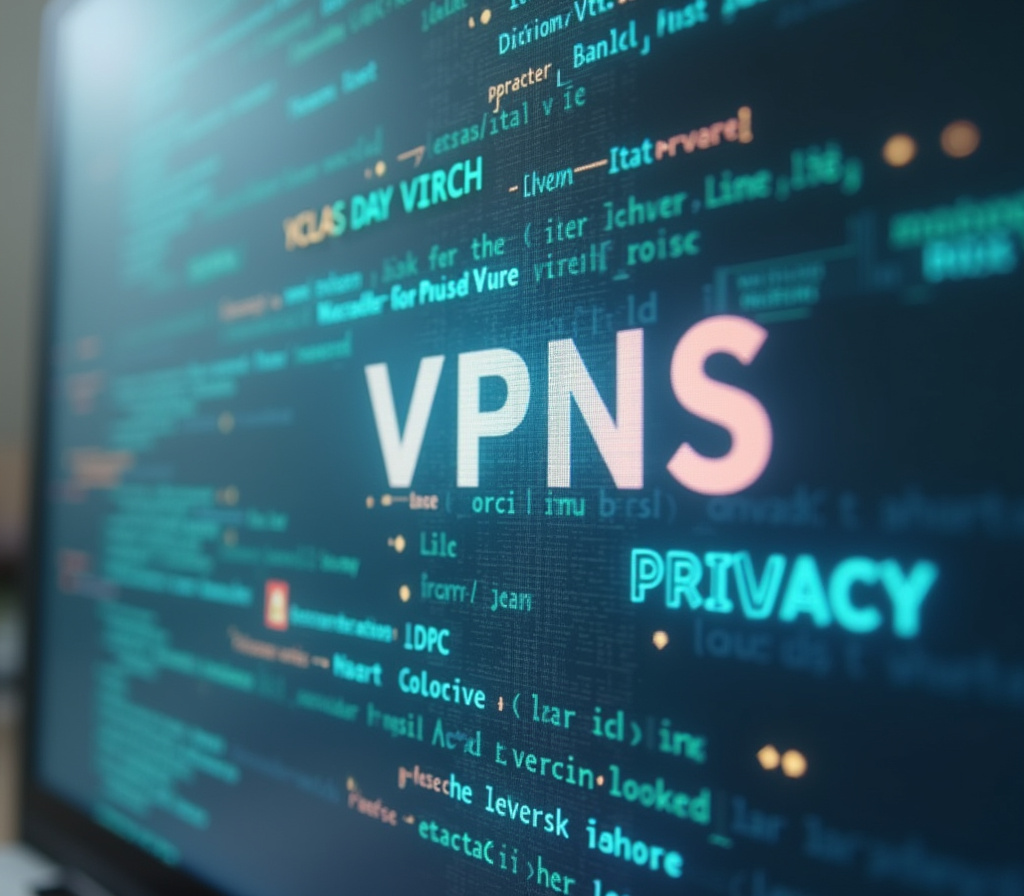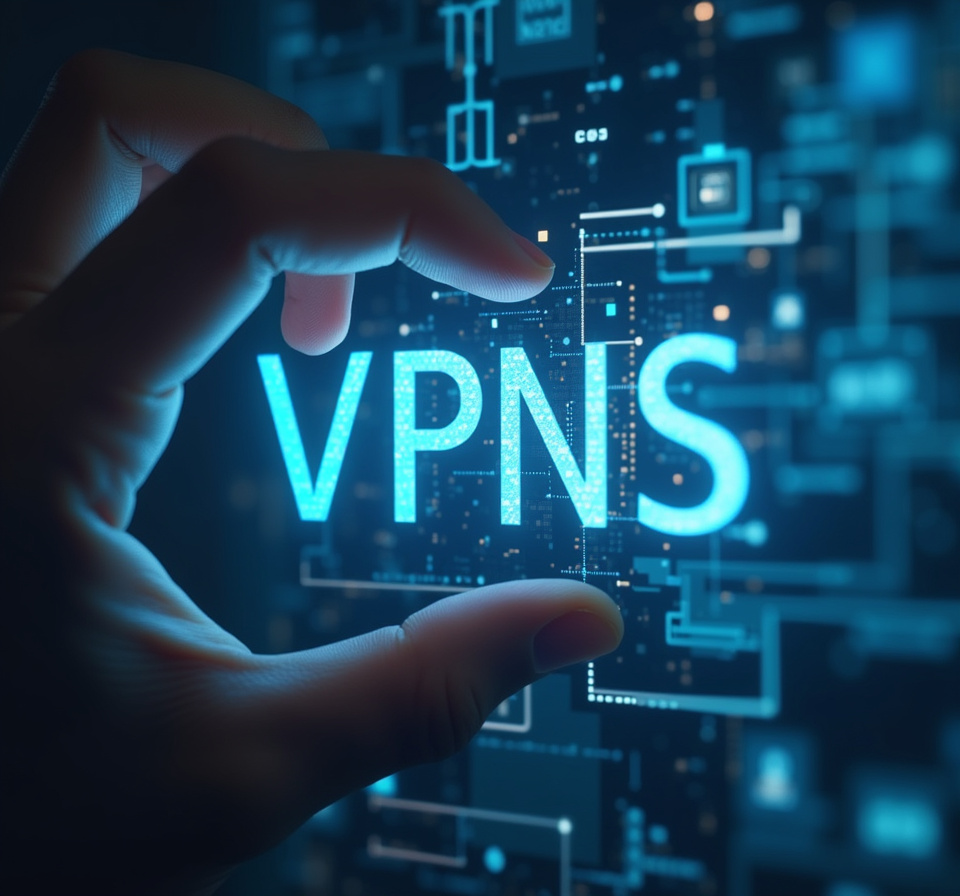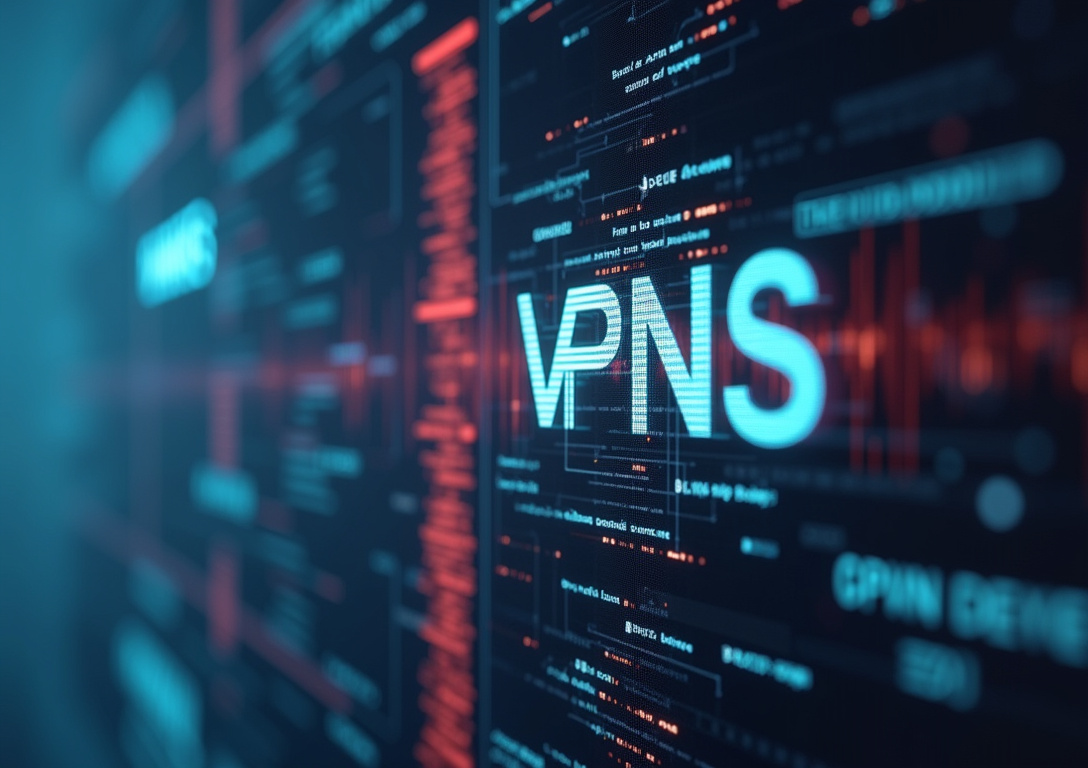VPNs for Students: Enhancing Online Learning Privacy
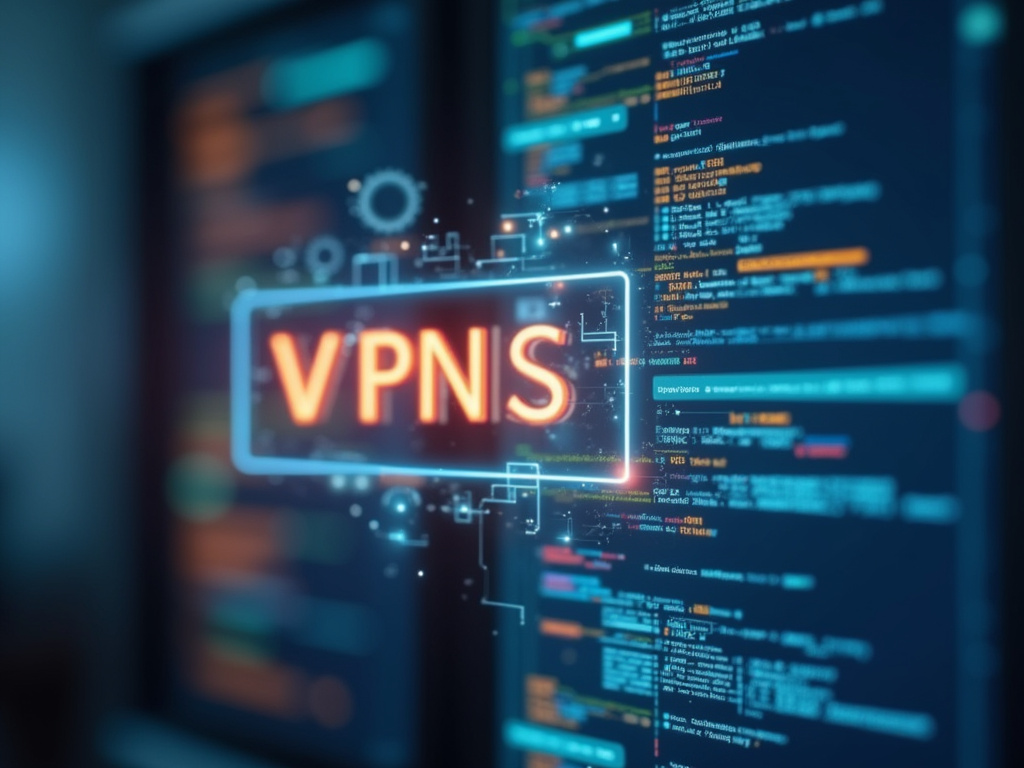
Table of Contents
student VPN
## VPNs for Students: Enhancing Online Learning Privacy The shift towards online learning has presented unprecedented opportunities for students worldwide, opening doors to vast educational resources and flexible learning environments. However, this digital transformation also introduces significant privacy and security concerns. Students are increasingly reliant on internet connectivity to access lectures, submit assignments, collaborate with peers, and conduct research.
This heightened online presence makes them vulnerable to various cyber threats, data breaches, and privacy infringements. Protecting student data and ensuring a safe online learning experience is paramount. A Virtual Private Network (VPN) offers a robust solution, providing a secure and encrypted connection for students accessing online resources.
This enhanced security is especially crucial in today's interconnected world, where cyber threats are becoming more sophisticated and prevalent. This article delves into the importance of VPNs for students, focusing on how they can bolster online learning privacy and educational security, enabling students to focus on their education without worrying about potential cyber risks. The goal of every student is to achieve excellence in their academics, and a safe access and secure online environment is vital for this; therefore, student VPN importance cannot be overemphasized in the context of remote learning privacy.
The rising instances of cyber-attacks targeting educational institutions underscore the pressing need for stringent security measures. These attacks can range from data breaches compromising sensitive student information to ransomware attacks disrupting online learning platforms. A acts as a shield, encrypting data transmitted between the student's device and the internet, making it virtually unreadable to cybercriminals.
This encryption ensures that personal information, login credentials, and academic records remain protected. Moreover, VPNs can help students bypass geographical restrictions and access content that may be blocked in their region. This is particularly beneficial for students studying abroad or those who need to access research materials from international institutions.
The ability to connect to servers in different countries allows students to circumvent censorship and access a wider range of educational resources, fostering a more comprehensive and global learning experience. In addition to security and accessibility, VPNs also enhance online privacy by masking the student's IP address and encrypting their online activity. This prevents websites, advertisers, and even internet service providers from tracking their online behavior and collecting personal data without their consent.
This is crucial for protecting students from targeted advertising, price discrimination, and other privacy violations. Embracing a VPN is an investment in a student's digital safety and privacy, ensuring a secure and unrestricted online learning experience. The benefits extend beyond mere data protection; a VPN promotes a sense of and security, allowing students to engage in their studies with peace of mind.
This enhanced security is especially important when students are accessing sensitive research materials or collaborating on projects that require confidentiality. Moreover, a VPN can help students avoid bandwidth throttling by their internet service provider (ISP), ensuring a consistent and reliable internet connection for . ISPs sometimes throttle bandwidth for certain types of traffic, such as streaming video or downloading large files, which can significantly impact the student's ability to participate in online classes or complete assignments.
A VPN encrypts the student's traffic, making it difficult for the ISP to identify the type of traffic and apply bandwidth throttling. In conclusion, VPNs are an essential tool for students navigating the complexities of online learning. They provide a secure and private connection, allowing students to access educational resources without compromising their personal information or online security.
By understanding the benefits and features of VPNs, students can make informed decisions and choose the right solution to protect their online learning experience. As online learning continues to evolve, VPNs will play an increasingly vital role in ensuring and a productive learning environment for students worldwide promoting . The ability to maintain privacy and security while accessing educational resources is paramount for students to thrive in the digital age, and VPNs offer a reliable and effective solution to achieve this goal.
student VPN
The core benefit of using a lies in its ability to create a secure and encrypted tunnel for internet traffic. This tunnel shields sensitive data from prying eyes, including hackers, identity thieves, and even surveillance agencies. When a student connects to a VPN, their device establishes a secure connection to a VPN server.
All data transmitted between the device and the VPN server is encrypted, meaning it is converted into an unreadable format. This encryption makes it extremely difficult for unauthorized parties to intercept and decipher the data. This is particularly important when students are using public Wi-Fi networks, such as those found in cafes, libraries, or airports.
Public Wi-Fi networks are notoriously insecure and often lack basic security measures, making them a prime target for cybercriminals. Without a VPN, students' online activity on public Wi-Fi is vulnerable to eavesdropping, allowing hackers to steal login credentials, personal information, and other sensitive data related to their activities. A VPN effectively mitigates this risk by encrypting all data transmitted over the public Wi-Fi network, ensuring that it remains protected even if the network itself is compromised.
This feature contributes significantly to . Beyond security, VPNs also play a crucial role in preserving online privacy. Every device connected to the internet is assigned a unique IP address, which can be used to track the user's location and online activity.
Websites, advertisers, and internet service providers can use IP addresses to collect data about users' browsing habits, interests, and personal information. This data can then be used for targeted advertising, price discrimination, or even surveillance, impacting student's research and their access to diverse opinions in their fields of study. A VPN masks the student's real IP address and replaces it with the IP address of the VPN server.
This effectively hides the student's location and makes it much more difficult to track their online activity, supporting . Additionally, VPNs often offer features like DNS leak protection and kill switches, which further enhance privacy by preventing data from being exposed even if the VPN connection drops unexpectedly. The DNS leak protection ensures that DNS requests are routed through the VPN server, preventing the ISP from tracking the websites the student is visiting.
The kill switch automatically disconnects the internet connection if the VPN connection drops, preventing any unencrypted data from being transmitted. The ability to bypass geographical restrictions is another significant advantage of using a VPN for . Many educational resources, such as online libraries, research databases, and streaming services, are only accessible from certain geographical locations.
This can be a major obstacle for students studying abroad or those who need to access content from international institutions. A VPN allows students to connect to servers in different countries, effectively changing their virtual location and granting them access to geographically restricted content. This empowers students to access the resources they need, regardless of their physical location, therefore, providing .
This is particularly useful for accessing academic journals and research papers that may be restricted to users within specific countries or institutions. Furthermore, students can use VPNs to access online courses and lectures that may be blocked in their region due to censorship or other restrictions. In essence, a VPN provides students with a comprehensive suite of tools to protect their online security, privacy, and access to educational resources.
By encrypting data, masking IP addresses, and bypassing geographical restrictions, VPNs empower students to navigate the online learning landscape safely and securely. Choosing the right VPN, however, is paramount to ensuring the effectiveness of these protections. Students should consider factors such as the VPN's security protocols, server locations, speed, and customer support when making their selection.
A reliable and trustworthy VPN provider can provide students with a peace of mind, knowing that their online activity is protected and their is preserved and their right to to knowledge is granted.
educational security
Selecting the appropriate VPN for student use necessitates careful consideration of several key factors. One of the most critical aspects is the VPN's security protocols and encryption standards, contributing directly to . Look for VPNs that utilize strong encryption algorithms, such as AES-256, which is considered one of the most secure encryption standards available.
Also, ensure that the VPN supports secure protocols like OpenVPN, IKEv2/IPsec, and WireGuard. These protocols offer robust security and performance, providing a reliable and secure connection for all activities. OpenVPN is a widely used and highly regarded protocol known for its open-source nature and strong security features.
IKEv2/IPsec is another secure protocol that is often preferred for its speed and stability, particularly on mobile devices. WireGuard is a newer protocol that is gaining popularity due to its lightweight design and impressive performance. Carefully evaluating the protocols supported by a VPN is essential to ensure a high level of security and privacy.
A crucial feature to look for in a is a strict no-logs policy. This means that the VPN provider does not collect or store any data about the student's online activity, including browsing history, IP addresses, and connection timestamps. A no-logs policy ensures that the student's online activity remains private and cannot be accessed by the VPN provider or shared with third parties.
It is important to carefully review the VPN provider's privacy policy to ensure that they have a clear and transparent no-logs policy that is enforced in practice. Some VPN providers claim to have a no-logs policy but may still collect some data about user activity. Look for VPN providers that have been independently audited to verify their no-logs policy.
Another important factor to consider is the VPN's server network. A large and geographically diverse server network allows students to connect to servers in different countries and bypass geographical restrictions, essential for to diverse materials. The closer the server is to the student's location, the faster the connection speed is likely to be.
A wide range of server locations also provides students with greater flexibility in choosing their virtual location and accessing content that is restricted to specific regions. Students studying abroad or those who need to access research materials from international institutions should prioritize VPNs with a strong global server network. Speed and performance are also critical considerations for a VPN used for .
A slow VPN can significantly impact the student's ability to participate in online classes, stream lectures, and download large files. Look for VPNs that offer fast connection speeds and low latency. Some VPN providers offer speed test tools that can be used to measure the VPN's performance in different locations.
It is also helpful to read reviews and compare the performance of different VPNs before making a decision. A fast and reliable VPN ensures a seamless and uninterrupted online learning experience. Finally, consider the VPN's ease of use and customer support.
A VPN with a user-friendly interface and helpful customer support can make the experience much more enjoyable and convenient for students, ensuring . Look for VPNs that offer intuitive apps for different devices, including desktops, laptops, smartphones, and tablets. A VPN with 24/7 customer support can provide assistance and troubleshooting whenever needed.
It is also helpful to check the VPN provider's website for FAQs, tutorials, and other resources that can help students get the most out of their VPN. By carefully considering these factors, students can choose a VPN that meets their specific needs and provides a secure, private, and unrestricted online learning experience.
student VPN
Beyond the core functionalities, several additional features can significantly enhance the value of a . A kill switch, for example, is a crucial security feature that automatically disconnects the student's device from the internet if the VPN connection drops unexpectedly. This prevents any unencrypted data from being transmitted, ensuring that the student's and personal information remain protected at all times.
The kill switch is particularly important when using public Wi-Fi networks, where the connection may be unstable or unreliable. Look for VPNs that offer a customizable kill switch that allows you to specify which applications should be closed when the VPN connection drops. DNS leak protection is another important feature that prevents DNS requests from being routed through the ISP's DNS servers, essential for .
DNS requests contain information about the websites the student is visiting, and if these requests are not protected, the ISP can track the student's online activity. DNS leak protection ensures that all DNS requests are routed through the VPN server, preventing the ISP from tracking the student's browsing history. This feature is essential for maintaining online privacy and preventing targeted advertising.
Split tunneling is a useful feature that allows students to choose which applications or websites should be routed through the VPN and which should be routed through their regular internet connection. This can be helpful for improving speed and performance for certain applications or websites that do not require VPN protection. For example, a student might choose to route their traffic through the VPN but route their streaming video traffic through their regular internet connection to avoid buffering or slowdowns.
Split tunneling can also be helpful for accessing local network resources while connected to the VPN. Simultaneous connections are another important consideration, especially for students who use multiple devices. Look for VPNs that allow you to connect multiple devices simultaneously with a single account.
This allows students to protect all of their devices, including their desktops, laptops, smartphones, and tablets, with a single VPN subscription. This can be a more cost-effective option than purchasing separate VPN subscriptions for each device. Ensure with all your student devices.
Many VPN providers offer additional features such as ad blocking, malware protection, and tracker blocking. These features can further enhance the student's online security and privacy by preventing malicious websites, ads, and trackers from collecting their personal data. These features can also improve the student's browsing experience by reducing the number of ads and trackers they encounter online.
While these features are not essential, they can be a valuable addition to a VPN subscription. Activating these extra protections can further enhance . Finally, consider the VPN provider's reputation and customer reviews.
Look for VPN providers that have a good reputation for security, privacy, and customer support. Read reviews from other students and users to get an idea of their experience with the VPN. A reputable VPN provider will be transparent about their security practices and privacy policies.
They will also offer responsive and helpful customer support in case you encounter any issues with the VPN. By carefully considering these additional features and factors, students can choose a VPN that provides a comprehensive and effective solution for protecting their online security, privacy, and access to educational resources, maximizing all the benefits that a has to offer.
student VPN
In conclusion, the adoption of a is no longer a luxury but a necessity in today's increasingly interconnected and threat-laden digital landscape. As students navigate the complex world of , a VPN provides a crucial layer of protection, ensuring their security, privacy, and unrestricted access to educational resources. The ability to encrypt data, mask IP addresses, and bypass geographical restrictions empowers students to learn and collaborate online with confidence, knowing that their personal information and online activity are shielded from prying eyes.
The modern student relies on different connections to achieve an online learning experience, therefore, it's important to ensure a in all connections. The benefits of using a VPN extend beyond mere data protection. A VPN promotes a sense of security and peace of mind, allowing students to focus on their studies without worrying about potential cyber threats or privacy violations.
This enhanced security is particularly important when students are accessing sensitive research materials, collaborating on confidential projects, or using public Wi-Fi networks. By taking proactive steps to protect their online security and privacy, students can create a more positive and productive learning environment. Furthermore, can be enhanced depending on what configurations are implemented, therefore, it's important to consider the possibilities VPNs offer .
Choosing the right VPN, however, is crucial to realizing these benefits. Students should carefully evaluate different VPN providers based on factors such as security protocols, encryption standards, no-logs policy, server network, speed, ease of use, and customer support. A reliable and trustworthy VPN provider will be transparent about their security practices and privacy policies, and they will offer responsive and helpful customer support in case any issues arise.
It is also important to consider
Stay Updated
Get the latest VPN news, tips, and exclusive deals to your inbox.

